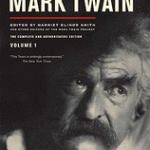I had a fun surprise this morning when I saw Pandora’s Tim Westergren on CNBC. I worked a summer job with Tim many years ago when I was a graduate student at Stanford. He was running a program to encourage minority students to study science, and I was one of the mentors, but I remember that he was working on Pandora at the time and had high hopes for it.
Seeing Tim got me thinking about how much being at Stanford changed the way I think. I don’t use my biology degree, but while I was at Stanford I took advantage of many opportunities outside of the lab (which anyone who is in the sciences knows made me a bad, very bad, PhD student).
I was the first person in my extended family to get a college degree, so when I got my undergraduate degree and landed a stable job with an insurance broker (good benefits!) my parents were proud. Everyone would have been happy if I’d continued on that path.
But instead, I ended up in a PhD program at Stanford—how I got there is a long story for another day.
At Stanford I rode in elevators with people who had won the Nobel Prize, rumor had it one of my instructors was on the Unabomber’s list, and most important, people expected great things from me. I will never forget sitting in an accounting class (no, I shouldn’t have been taking accounting as a biology PhD candidate), and having the instructor say that some of us would run Fortune 500 companies. People didn’t say things like that at the other colleges I attended. I was the student representative on a panel that made recommendations about genetic testing for Alzheimer’s disease and wrote a chapter for the final report. I took a bioethics class from one the president’s bioethics advisers. (He laughed when he told us he had missed class because he was summoned to Washington for an emergency ethics meeting when Dolly, the sheep, was cloned.) That’s just a tiny sliver of what I saw and did. I could go on, but you get the idea.
It’s a bit hard to separate the Stanford effect from also being in the middle of the dotcom frenzy, but I’m certain the combination of those two environments changed me forever. Great things became possible . . . expected . . . normal.
But is it worth paying for such an expensive college experience? As a graduate student in the sciences, I didn’t have to pay tuition, so it’s hard for me to say since I don’t carry the burden of debt; but I can certainly say that even though I don’t use my degree—at all—I’ve never for a second felt those four years were wasted.
 The Grammar Devotional ($4.99 e-book sale)
The Grammar Devotional ($4.99 e-book sale) Grammar Girl’s Quick and Dirty Tips for Better Writing ($4.99 e-book sale)
Grammar Girl’s Quick and Dirty Tips for Better Writing ($4.99 e-book sale)

